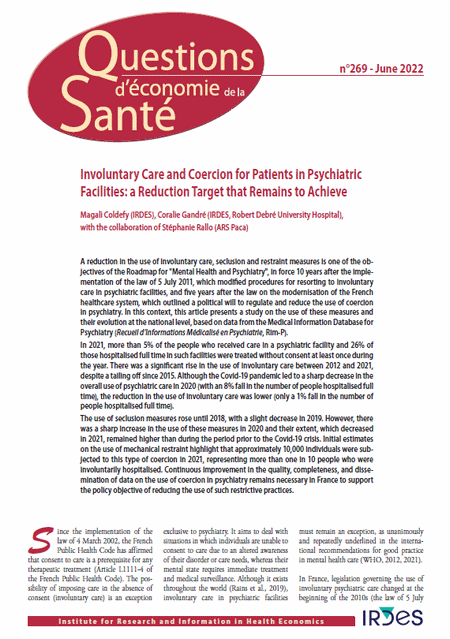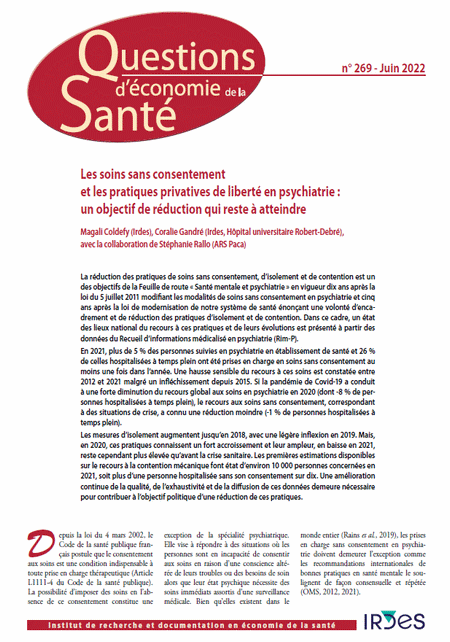Involuntary Care and Coercion for Patients in Psychiatric Facilities: A Reduction Target that Remains to Achieve
Coldefy M. (Irdes), Gandré C. (Irdes, Hôpital universitaire Robert-Debré), with the collaboration of Rallo S. (ARS Paca)
Questions d'économie de la santé (Issues in Health Economics) n° 269 - June 2022
ABSTRACT
A reduction in the use of involuntary care, seclusion and restraint measures is one of the objectives of the Roadmap for "Mental Health and Psychiatry", in force 10 years after the implementation of the law of 5 July 2011, which modified procedures for resorting to involuntary care in psychiatric facilities, and five years after the law on the modernisation of the French healthcare system, which outlined a political will to regulate and reduce the use of coercion in psychiatry. In this context, this article presents a study on the use of these measures and their evolution at the national level, based on data from the Medical Information Database for Psychiatry (Recueil d’Informations Médicalisé en Psychiatrie, Rim-P).
In 2021, more than 5% of the people who received care in a psychiatric facility and 26% of those hospitalised full time in such facilities were treated without consent at least once during the year. There was a significant rise in the use of involuntary care between 2012 and 2021, despite a tailing off since 2015. Although the Covid-19 pandemic led to a sharp decrease in the overall use of psychiatric care in 2020 (with an 8% fall in the number of people hospitalised full time), the reduction in the use of involuntary care was lower (only a 1% fall in the number of people hospitalised full time).
The use of seclusion measures rose until 2018, with a slight decrease in 2019. However, there was a sharp increase in the use of these measures in 2020 and their extent, which decreased in 2021, remained higher than during the period prior to the Covid-19 crisis. Initial estimates on the use of mechanical restraint highlight that approximately 10,000 individuals were subjected to this type of coercion in 2021, representing more than one in 10 people who were involuntarily hospitalised. Continuous improvement in the quality, completeness, and dissemination of data on the use of coercion in psychiatry remains necessary in France to support the policy objective of reducing the use of such restrictive practices.
See also Questions d'économie de la santé n° 269 in French: Les soins sans consentement et les pratiques privatives de liberté en psychiatrie : un objectif de réduction qui reste à atteindre.

